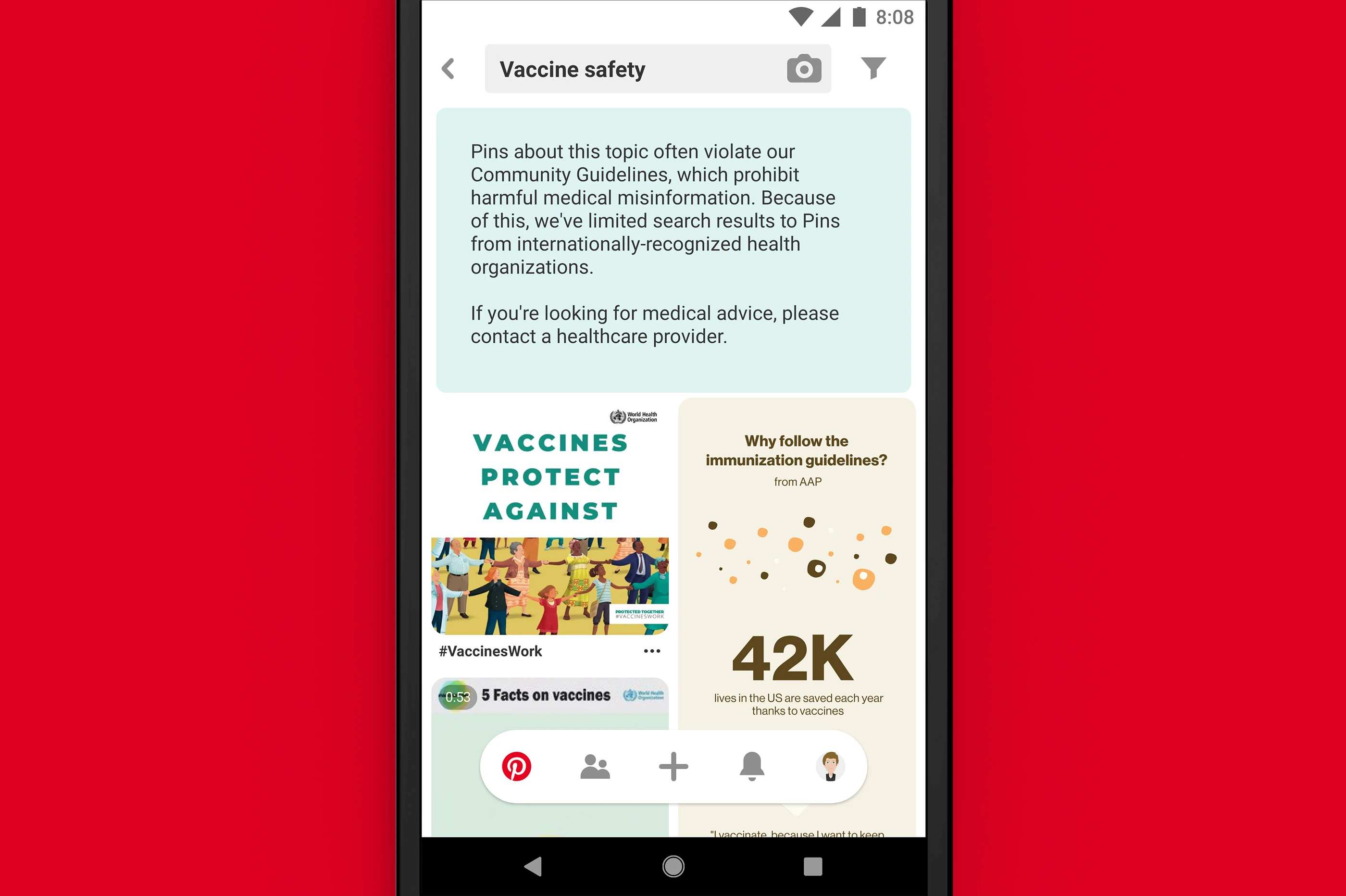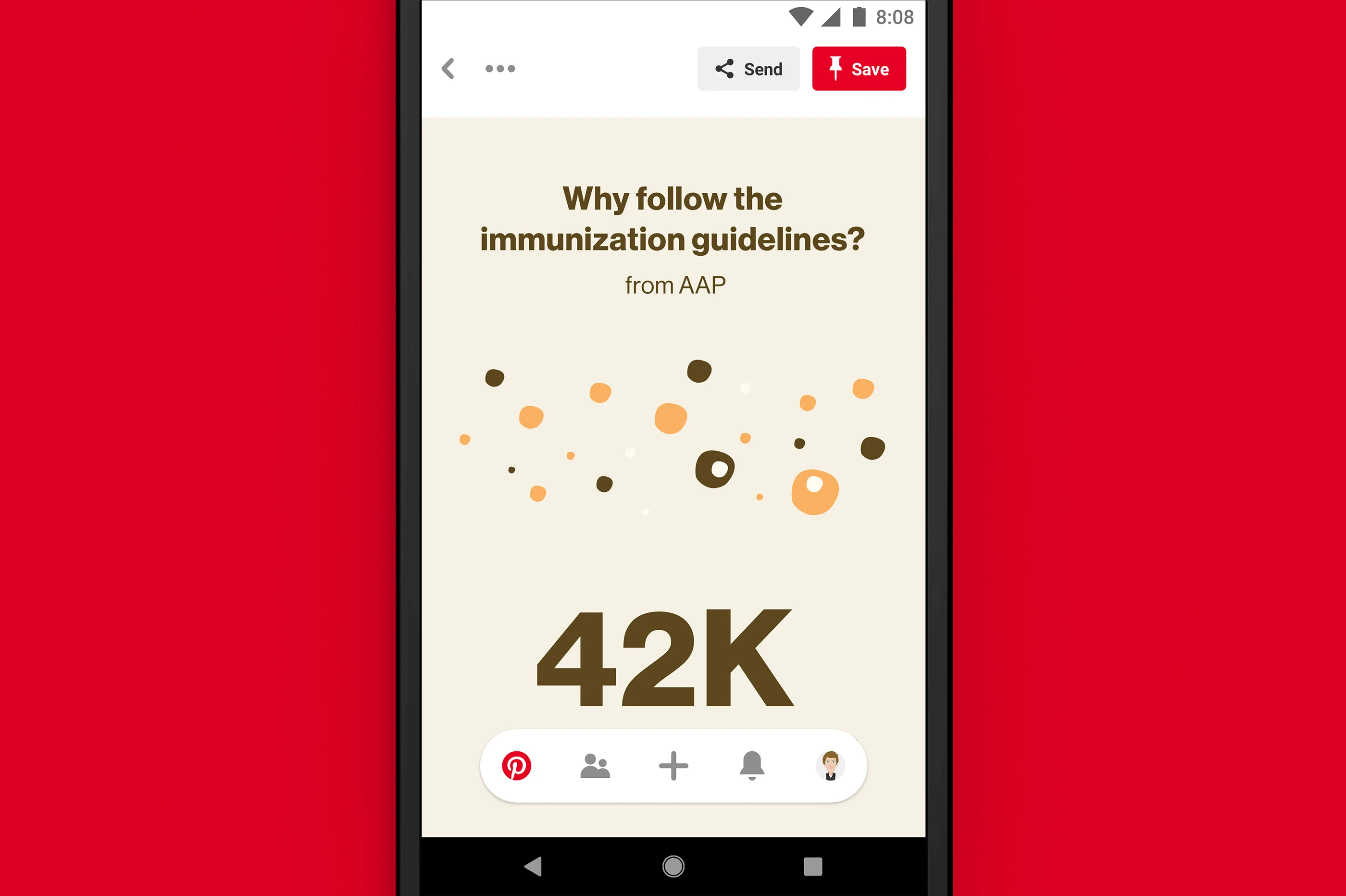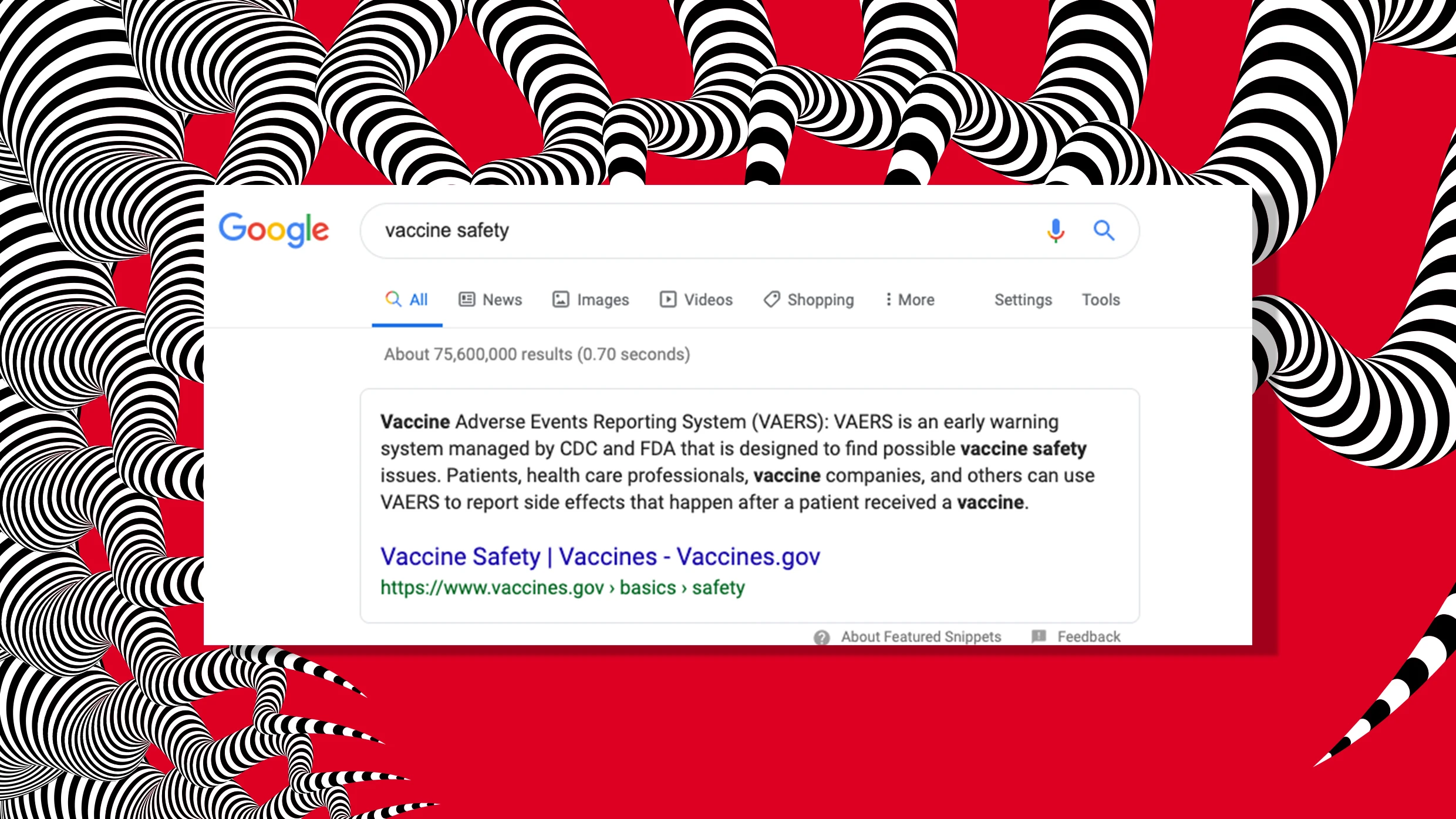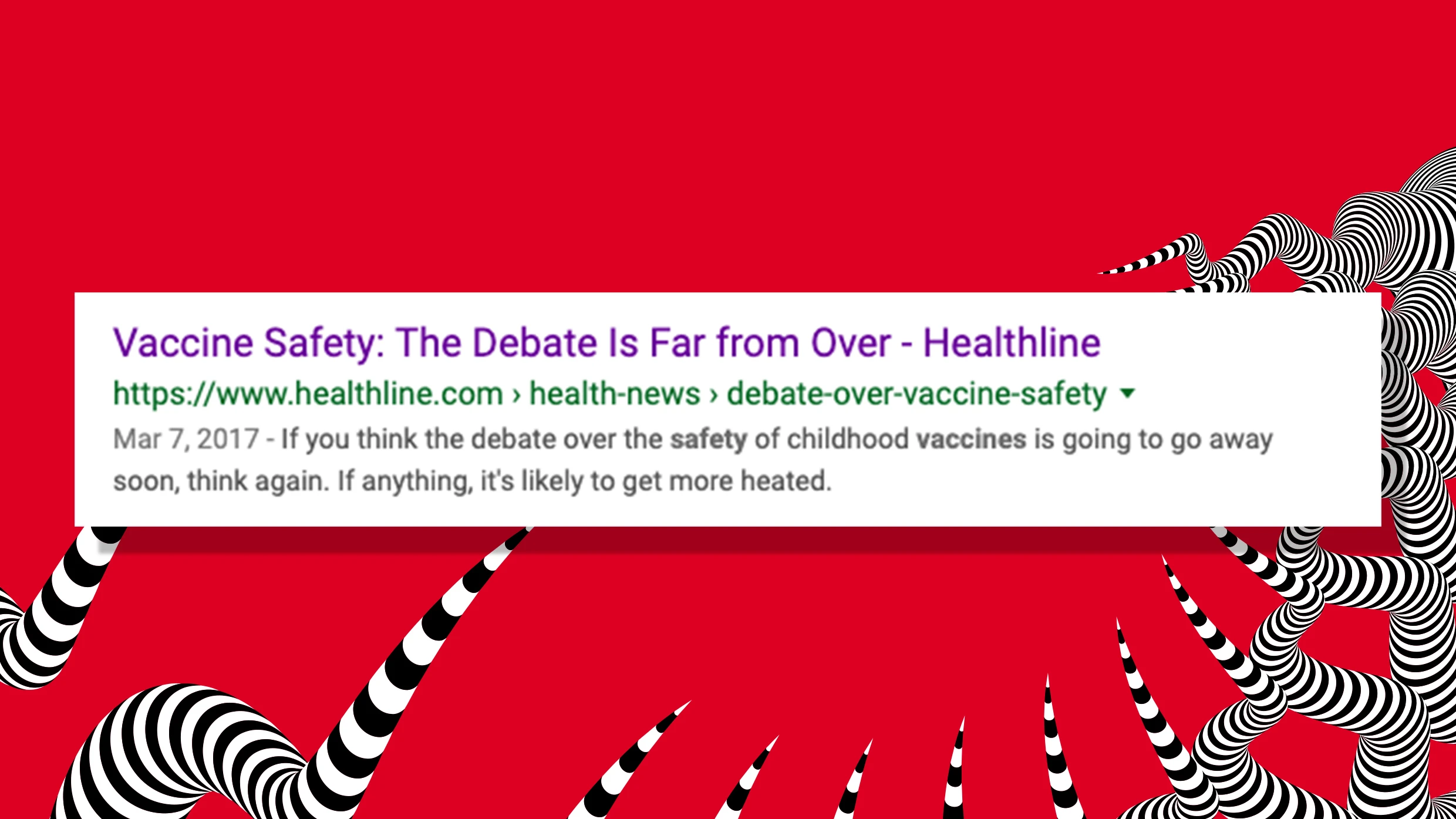In early 2019, as most social networks were still rubbing their beards about how to deal with fake news, Pinterest took an aggressive, straightforward step to prevent the spread of dangerous misinformation around vaccines: The company simply began blocking anti-vaccination searches on its platform. You could search anti-vaccination keywords, but the results page would present an error message, explaining that, “Pins about this topic often violate our Community Guidelines, which prohibit harmful medical information.” With this change, Pinterest made two things clear: Anti-vaxxer content was harmful, anti-science stuff. And Pinterest would have no part in its propagation.
As Pinterest’s Ifeoma Ozoma told Co.Design at the time, “People come to our platform to find inspiration, and there’s nothing inspiring about harmful content.”

[Image: courtesy Pinterest]
“This new search experience only shows results from leading public health institutions—you won’t see any recommendations or comments on Pins in these results,” the company explains in a press release. “We also won’t show ads. We’re taking this approach because we believe that showing vaccine misinformation alongside resources from public health experts isn’t responsible.”

It’s not groundbreaking design, but it’s still radical in the context of modern-day search engines and social networks—especially as the U.S. is on the brink of an embarrassing resurgence of measles. A test search for “vaccine safety” on Google I conducted just yesterday found that the top result, which Google highlights with an excerpted card, was actually for a database for reporting bad reactions to vaccines. That database is legitimate, but it is just the sort of resource that might make someone on the factual fence believe vaccines aren’t inherently safe. It provides opportunity for confirmation bias.
Below the top result, several links, from hospitals, the government, and private companies, do indeed reinforce the safety of vaccines. But then, right in the middle of the page, a news headline that reads “Vaccines Safety: The Debate Is Far From Over” from Healthline.com implies that, oops, vaccines might not be safe after all! The article itself is reported with several citations, but it presents the perspectives of both sides as equally scientific—a strategy that has helped sustain climate change deniers for decades. This technique is now known as false balance.

In any case, Google has shared in the past that it ranks search results by tricky metrics called “relevance” and “authority.” It uses all sorts of cues to determine those things, like how many other sites link the resource. But “authority” is not “veracity,” and much of the work is about whether or not results respond to a query rather than if they are actually factual. Pinterest, of course, doesn’t operate at nearly Google’s scale. It can, perhaps, more feasibly put out factual fires than Google can.

That said, it’s worth taking a moment to look at what Pinterest has built. Platforms should be making the truth easier to find, not more difficult.
Recognize your brand’s excellence by applying to this year’s Brands That Matter Awards before the early-rate deadline, May 3.
